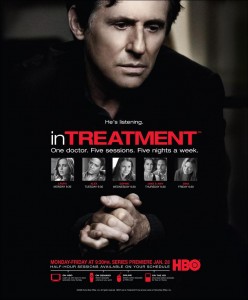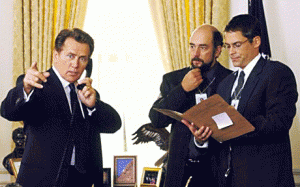In the words of playwright Theresa Rebeck (from a talk she gave in 2010, reprinted in Women & Hollywood) : ‘It’s time to hear both sides, to hear all voices, to build a culture where stories are told by both men and women. That is the way the planet is going to survive, and it’s the way we are going to survive.’ So, how can we build that culture? Where do we start? I will list a few options to start with, and I’m inviting you to suggest more:
Tag: Writing
American TV is written for the most part by (white) men. The same applies to American movies, as well as European movies and European TV. Is it then a surprise that male characters outnumber females at least 3 to 1, even though females comprise over 50% of the population? Even more staggering is the fact that this ratio remains the same since 1946! According to Stacy Smith of the USC Annenberg School for Communication & Journalism, 80.5% of all working characters are male and 19.5% are female – in contrast, of course, to real world statistics, where women comprise 50% of the workforce.
 In the second episode of Season One of Mad Men, one of the copywriters is showing the agency to a new secretary, trying to impress her: “You know . . . there are women copywriters!” he claims. – “Good ones?” – “Sure,” he says. “I mean, you can always tell when a woman is writing copy. But sometimes she may be the right man for the job, you know?” Not much has changed since the days depicted in Mad Men. Or at least, not enough. This is still a man’s world – and sometimes a woman will get a writing job not because she is “the right man for the job” but because she is a woman.
In the second episode of Season One of Mad Men, one of the copywriters is showing the agency to a new secretary, trying to impress her: “You know . . . there are women copywriters!” he claims. – “Good ones?” – “Sure,” he says. “I mean, you can always tell when a woman is writing copy. But sometimes she may be the right man for the job, you know?” Not much has changed since the days depicted in Mad Men. Or at least, not enough. This is still a man’s world – and sometimes a woman will get a writing job not because she is “the right man for the job” but because she is a woman.
So what is the big difference between the film and TV industries? And why is American TV so successful? There are surely as many theories as there are shows, and they are probably all right. Still, allow me to add one more, based on one very important difference that I believe has been overlooked till now despite its enormous significance.
TV is known as a better place for writers than any of the other dramatic media, with the sole exception of the theater, of course. Besides, TV drama is nowadays so highly regarded that it is already changing some of the old rules regarding old industry traditions. The crossover of the boundary between cinema and TV, whereby writers can move once again from one medium to the other, with greater ease, is one of the changes. It remains to be seen whether the crossover experiment will affect the writer’s importance in other media too – especially in film.
 So how can you stay true to yourself as a writer, especially when one is supposed to be imitating another writer’s voice? For one thing, one can stop chasing fads or writing what one think the showrunner might want to see. Jane Espenson, who has written for Buffy the Vampire Slayer, Battlestar Galactica and Game of Thrones and has also created her own Web TV show, Husbands, talks to me about how important it is to trust your own instincts and your own good taste. She is not the only one: Jenny Bicks encourages “writing what you want to write, going towards the love” and Tom Fontana goes as far as to very simply state that “being successful is being faithful to oneself.”
So how can you stay true to yourself as a writer, especially when one is supposed to be imitating another writer’s voice? For one thing, one can stop chasing fads or writing what one think the showrunner might want to see. Jane Espenson, who has written for Buffy the Vampire Slayer, Battlestar Galactica and Game of Thrones and has also created her own Web TV show, Husbands, talks to me about how important it is to trust your own instincts and your own good taste. She is not the only one: Jenny Bicks encourages “writing what you want to write, going towards the love” and Tom Fontana goes as far as to very simply state that “being successful is being faithful to oneself.”
By Christina Kallas
 One thing’s for sure: people don’t go to writing to be rewritten. But they still are, first and foremost by the showrunner. The showrunner is the writer who tells the writers what to do, and who will eventually do it herself.
One thing’s for sure: people don’t go to writing to be rewritten. But they still are, first and foremost by the showrunner. The showrunner is the writer who tells the writers what to do, and who will eventually do it herself.
So should a showrunner polish the final draft of every episode to preserve the “voice” of the series, or should each individual writer be allowed to use their voice to bring out new sides to the characters and the series?


